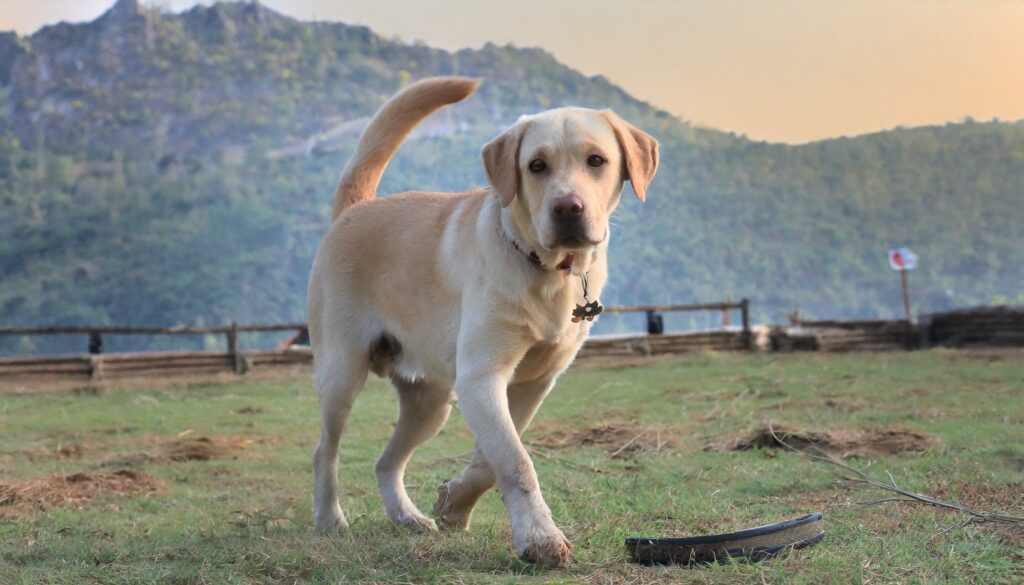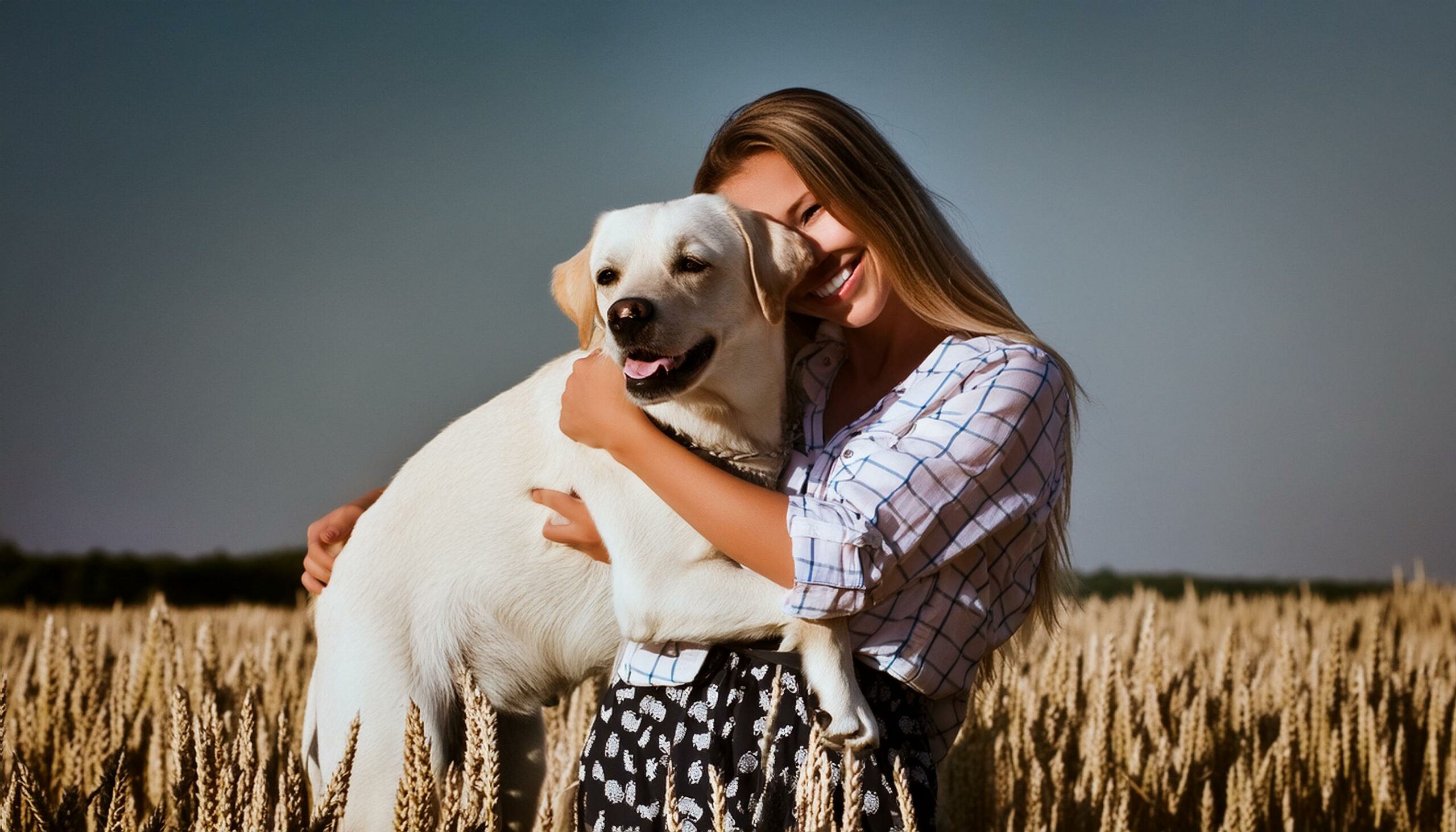Understanding the intricacies of our beloved canine companions’ emotions and preferences is fundamental to nurturing a strong bond with them. Among the many ways humans express affection, hugging stands out as a universal gesture of love and comfort. However, when it comes to dogs, the question arises: do they share our enthusiasm for hugs? In this article, we delve into the complex dynamics of canine behavior to uncover the truth behind their response to hugs.
The Concept of Hugging
Defining Hugging
Hugging is a tactile expression of affection characterized by wrapping one’s arms around another. For humans, it’s a gesture laden with warmth and reassurance.
Human Perception vs. Dog Perception
While humans perceive hugs positively, associating them with comfort and emotional closeness, dogs interpret physical contact differently. Canines rely heavily on body language and non-verbal cues to communicate, making their perception of hugs distinct from ours.
Do Dogs Enjoy Hugs?
Understanding whether dogs enjoy hugs requires a nuanced examination of their behavior and responses to physical contact.
Body Language Signals
Dogs communicate primarily through body language, utilizing cues such as tail wagging, ear position, and facial expressions. Observing these signals provides valuable insights into their emotional state.
Stress and Anxiety
Some dogs may find hugs stressful or anxiety-inducing due to the restraint and invasion of personal space they entail. Signs of discomfort may include panting, trembling, or attempts to escape the hug.
Trust and Bonding
While some dogs tolerate hugs from trusted individuals, others may genuinely enjoy the closeness and affection they symbolize. The degree to which a dog enjoys hugs often depends on factors such as their personality, past experiences, and the quality of their bond with their human companions.
Factors Influencing Dogs’ Reaction to Hugs
Several factors influence how dogs perceive and respond to hugs.
Individual Personality
Just like humans, dogs exhibit a range of personalities, with some being more naturally affectionate and receptive to physical contact, while others prefer space and autonomy.
Previous Experiences
A dog’s past experiences shape their responses to hugs. Positive encounters may lead to a greater acceptance of hugs, while negative experiences can result in aversions or anxiety.
Breed Traits
Certain dog breeds are known for their affectionate nature and may be more predisposed to enjoy hugs, while others, particularly those with independent tendencies, may be less inclined to appreciate close physical contact.
Signs of Discomfort
Recognizing signs of discomfort is crucial for understanding a dog’s response to hugs.
Avoidance Behaviors
Dogs may attempt to avoid hugs by turning their head away, leaning backward, or attempting to move out of reach.
Growling or Snapping
When feeling threatened or uncomfortable, dogs may vocalize their distress through growling or even snapping as a warning signal.
Stiff Body Language
Stiffening of the body, flattened ears, or wide eyes may indicate discomfort or fear in response to hugs.
Alternatives to Hugging
Instead of hugging, there are alternative ways to express affection towards dogs.
Verbal Praise
Offering verbal praise and positive reinforcement can convey love and appreciation without the need for physical contact.
Physical Contact Dogs Prefer
Many dogs enjoy belly rubs, scratches behind the ears, or gentle massages as forms of affection that respect their preferences.
Engaging in Play
Playing games such as fetch or tug-of-war can strengthen the bond between humans and dogs while allowing for interactive and enjoyable forms of affection.
Respecting a Dog’s Personal Space

Respecting a dog’s personal space is essential for maintaining trust and fostering a positive relationship.
Reading Canine Cues
Learning to interpret a dog’s body language and respecting their signals is essential for preventing discomfort or anxiety.
Training for Consent
Teaching dogs to indicate their consent for physical contact through cues such as offering a paw or leaning in can promote mutual respect and understanding.
Building Trust Through Positive Interactions
Consistently providing positive experiences and respecting boundaries builds trust and strengthens the bond between humans and dogs.
The Importance of Consent
Respecting a dog’s comfort level and boundaries is paramount for maintaining a healthy and trusting relationship.
Understanding Dog’s Comfort Zones
Recognizing and honoring a dog’s comfort zones prevents stress and promotes feelings of safety and security.
Teaching Children About Respecting Dogs
Educating children about approaching dogs respectfully and seeking consent before petting or hugging helps prevent accidents and promotes harmonious interactions.
Tips for Safe Interactions
Ensuring interactions with dogs are positive and safe requires attention and awareness.
Observing Body Language
Being mindful of a dog’s body language helps anticipate their reactions and adjust interactions accordingly.
Allowing the Dog to Approach
Allowing dogs to initiate contact reduces the likelihood of discomfort and fosters a sense of autonomy and choice.
Supervising Interactions with Children
Supervising interactions between dogs and children ensures safety and teaches kids the importance of respecting animals’ boundaries.
Conclusion
While hugs are a common expression of affection among humans, it’s essential to recognize that not all dogs enjoy being hugged. Understanding canine body language, respecting their boundaries, and fostering trust through positive interactions are key to nurturing a strong and healthy bond with our furry friends.
FAQs
Can all dogs enjoy hugs?
Dogs, like humans, have individual preferences. While some may enjoy hugs, others may find them uncomfortable or stressful.
How do I know if my dog likes hugs?
Watch for signs of discomfort such as stiff body language, avoidance behaviors, or vocalizations. If your dog shows these signs, it’s best to respect their preferences.
Are there breeds more likely to enjoy hugs?
Certain breeds, such as Labrador Retrievers and Golden Retrievers, are known for their affectionate nature and may be more receptive to hugs.
Can hugs cause anxiety in dogs?
Yes, hugs can potentially cause anxiety in some dogs, especially if they feel trapped or overwhelmed. It’s essential to observe their body language and adjust interactions accordingly.
Should I hug my dog if it shows signs of discomfort?
No, it’s crucial to respect your dog’s boundaries and avoid forcing physical contact if they show signs of discomfort or stress.
